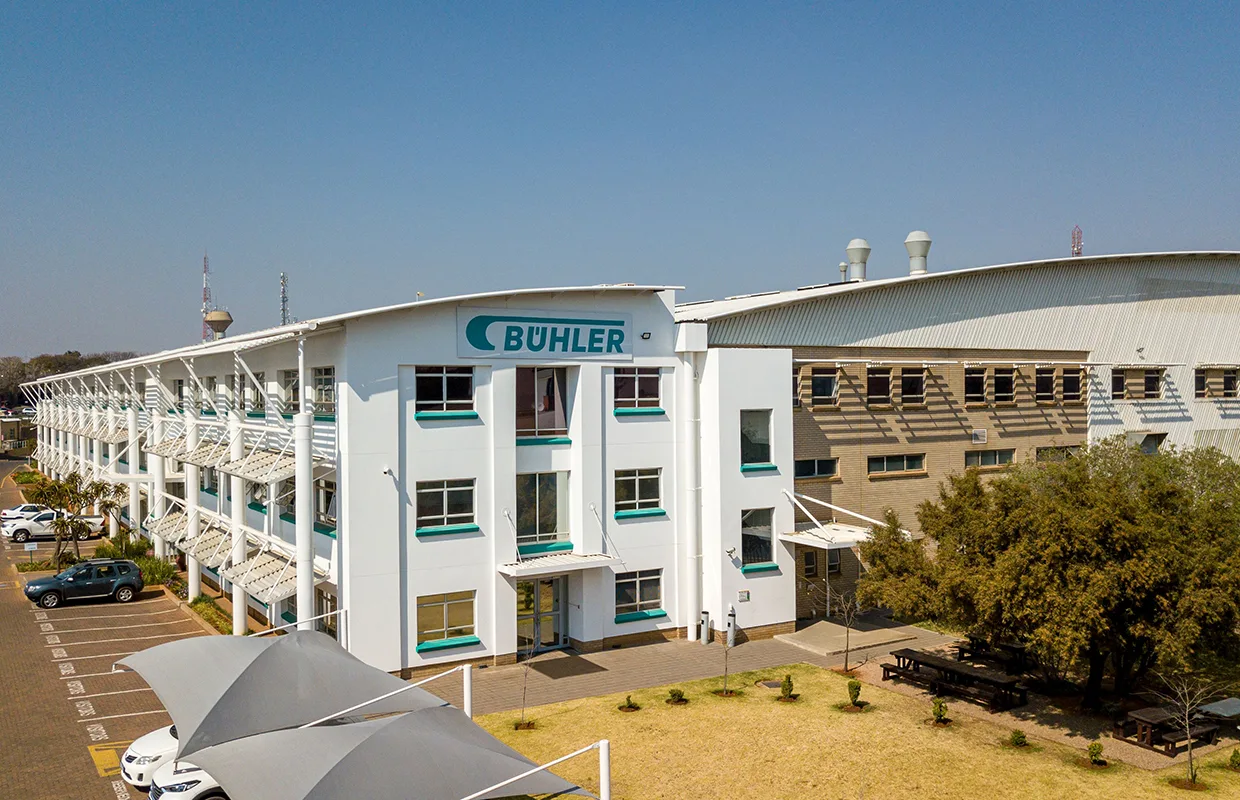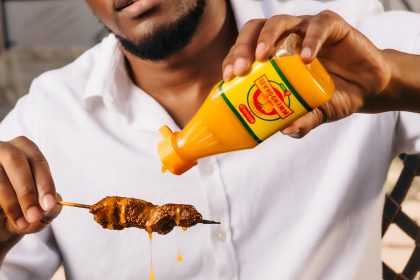Prioritising food safety, security, and sustainability, Bühler Group’s activities in Southern Africa are driven by an evolving socioeconomic landscape. Marco Sutter, Managing Director – Southern Africa, tells us more.
SUSTAINING PEOPLE AND PLANET
Dating back over 160 years, Bühler Group (Bühler) is a family-owned, fifth-generation industrial equipment manufacturing company with head offices in Uzwil, Switzerland, boasting over 140 international locations, and with 12,000+ employees.
The company’s activities in Johannesburg, South Africa (SA), have been ongoing since 1972, serving key locations including Angola, Zambia, Zimbabwe, Malawi, and Mozambique.
Alongside the Johannesburg facility, Bühler has workshops in SA’s legislative capital of Cape Town as well as the Zambian capital of Lusaka, reinforcing its long-standing history and local presence in the region.
The company’s impressive portfolio of products and equipment centres around two main pillars – grains and food solutions, and advanced materials.
Through its grains and food solutions pillar, Bühler provides equipment and processes for wheat, maize, and ancient grain milling, alongside technologies to help consumer food manufacturers produce pasta, cereals, wafers, biscuits, chocolate, candy, and coffee.
“If we look at SA in particular, milling is one of the main industries supporting the national economy,” introduces Marco Sutter, Managing Director – Southern Africa.
Bühler provides feed solutions derived from maize milling by-products such as wheatmeal and bran, helping to make economical use of raw materials and energy.
As a trusted technology partner with deep industry experience, Bühler also supports the production of high-quality aqua feed, ensuring consistent, reliable output for a range of animal nutrition needs.
Elsewhere, the company’s advanced materials pillar produces a range of offerings, including ink, coatings for phone screens, glasses, and windows, die-castings for the automotive industry, and slurry for lithium-ion electric vehicle (EV) batteries.
“The EV business is fairly new to us, but we’re interested in the opportunities it presents for carbon neutrality,” Sutter reflects.
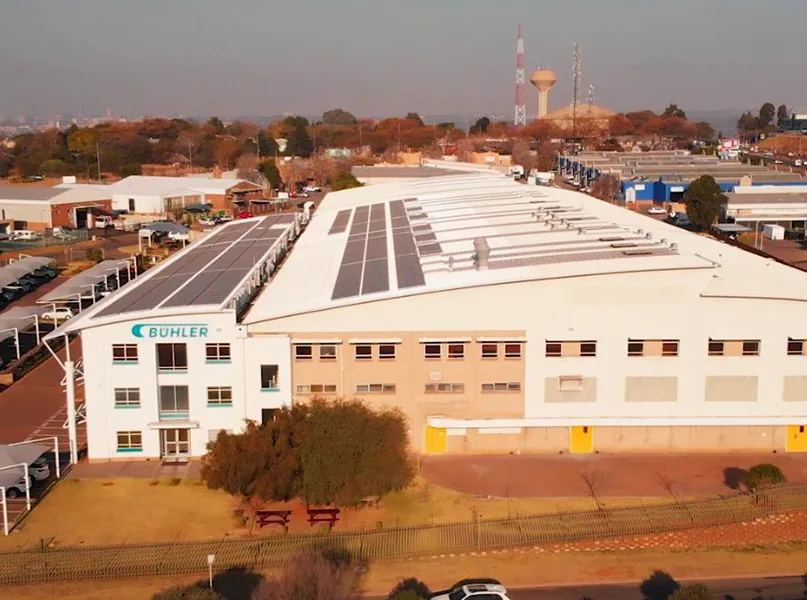
AN EVOLVING LANDSCAPE
Bühler’s activities in SA are integral. With 220 employees in the region, the company has a major focus on producing equipment for the mining industry.
“Globally, Bühler is not particularly active in mining, but SA’s prevalence in this area has seen us contribute to the mining and energy sectors consistently since the 1980s,” Sutter explains.
As such, the company has established a loyal customer base that returns for repeat business time and again.
“We also have a local customer service setup, which is a key differentiator as it enables us to customise or modify current equipment or retrofit old machines to give them new life,” he emphasises.
As Africa’s population continues to grow, it is undergoing increased urbanisation and experiencing the growth of a young population.
“Whilst this means there are lots of new mouths to feed, we’ve also seen many local people shift from low-income to middle-income economic status, which has had a direct impact on eating habits and, in turn, the demographic of our food and beverage clientele, ramping up demand,” outlines Sutter.
Meanwhile, digitalisation has had a major impact on Bühler’s overall supply chain – particularly within SA – as transparency and traceability across the value chain become ever more important.
“Take our wheat and maize, for example – customers want to understand which farm it came from as food safety is becoming an increasingly important topic,” he adds.
Automation is also growing in SA, with automated processes and production lines offering energy efficiency, cost savings, and optimum use of raw materials – meaning higher yields and less waste.
Despite this rapid digital advancement, however, Bühler recognises the importance of a human touch when it comes to its customer base, for whom it will always maintain a local presence in the region.
“Our after-sales service is vital, which is why it is important for us to be as close as possible to our customers around the world,” Sutter details.
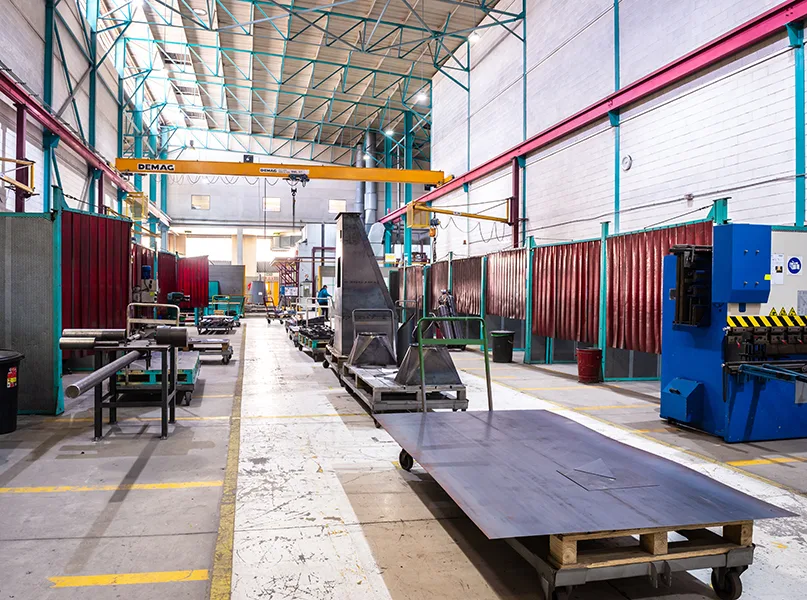
SUSTAINABILITY AT THE CENTRE
Bühler’s 2025 sustainability targets, defined in 2019, include a commitment to have solutions ready to implement by 2025 that will reduce energy, waste, and water by 50 percent in its customers’ value chains.
So far, this target has seen the company introduce new processes, systems, and training concepts.
“Today, we can proudly say 80 percent of the targets we initially defined for 2025 have been either achieved or overachieved,” prides Sutter.
Having already reduced global Scope 1 and 2 emissions by more than 20 percent compared to its baseline year in 2019, Bühler’s activities in SA have seen it investing more heavily in sustainability to continue this positive trend.
“We’ve installed solar panels at our Johannesburg and Cape Town workshops, which we utilise throughout the day. SA is the sunshine country, after all, enjoying over 300 days of sunshine per year,” he smiles.
To maximise these unprecedented solar gains, the company has installed a storage battery which allows the factory to not only generate solar energy but store it.

Bühler has also made constant upgrades to its offices, having recently fitted the latest generation of LED lights – providing a 60 percent reduction in power consumption and overall healthier lighting for employees.
“We are also looking into a new water system which means we can reuse and recycle certain types of water in our toilets, for example,” Sutter continues.
The company intends to continue investing in its sustainability goals and has just secured approval to increase the solar panels at the Johannesburg workshop, which will double the battery power.
“This will mean we can even run the night shift straight from the battery, recharging it during the day,” he excites.
Ultimately, the company’s long-term aim in SA is to be fully off-grid.
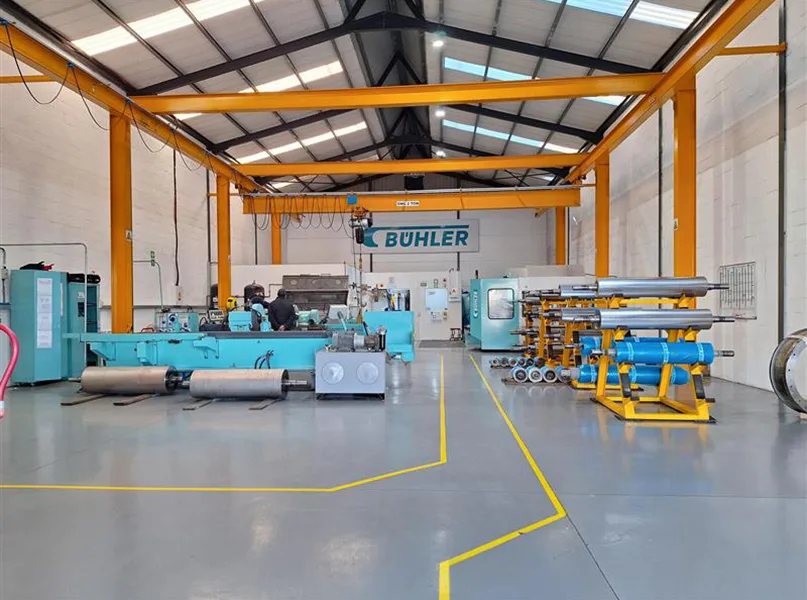
INNOVATION IS KEY
As it navigates a world in which innovation has become key, Bühler is actively conducting R&D in partnership with customers in the automotive industry to create lighter engine blocks.
It is hoped that, in turn, this will lead to vehicles having lighter engine blocks, needing less petrol, and making a positive impact on the environment.
Elsewhere, Bühler is working on streamlining its car chassis via casting technology, resulting in fewer parts and less emissions in terms of production.
“Currently, a typical chassis has around 250 parts – we can reduce this by more than half,” asserts Sutter.
Elsewhere, the food and beverage market welcomes sustainability in terms of food safety and security, meaning everybody has access to safe products.
“Currently, nearly 800 million people go to bed hungry every night – something Bühler feels it can work to alleviate. We touch around two billion people every day through our products, so our responsibility and influence in the food market is huge,” he reflects.
Thus, it’s important for Bühler to work closely not only with its business partners, but also local universities and corporations to achieve sustainability goals.
“In both the automotive and food, feed, and beverage industries, we collaborate with global and local players to achieve our targets,” Sutter posits.
As such, the company works in tandem with government and small to medium-sized enterprises (SMEs) in SA to achieve success stories.
For example, Bühler has supported a local bakery in Soweto for around 15 years. It first taught the female business owners how to bake and create a business plan.
Having grown from four employees to 60, the bakery now operates out of one of Soweto’s largest shopping malls, often supplying Bühler’s corporate events with pastries and baked goods.
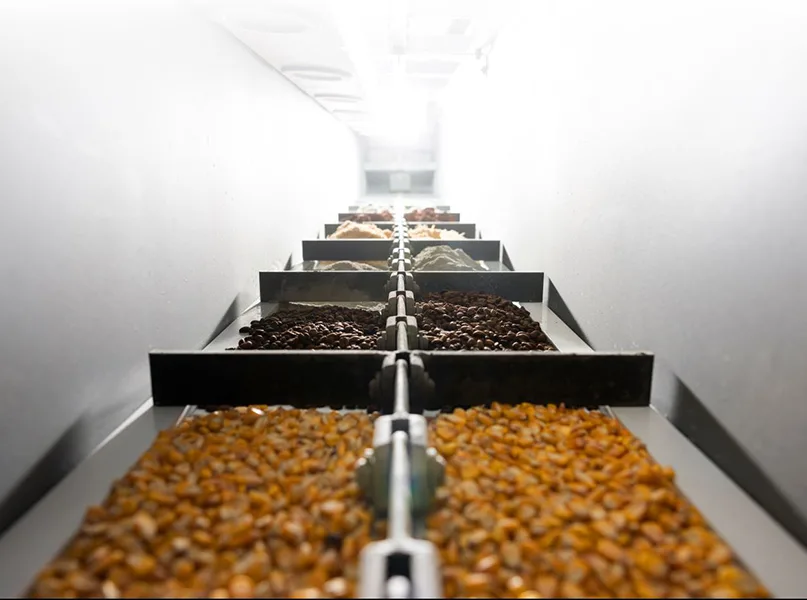
SOCIALLY RESPONSIBLE
Close collaboration with local education institutions and schools has allowed Bühler to involve itself in the next generation of employees, which Sutter cites as being particularly important in Africa.
“Many young people grow up here wanting to be a doctor or lawyer, but we’re on hand to offer high-school students a place on our accessible local apprenticeship plan,” he comments.
The dual apprenticeship programme hosts learners who undergo both practical and theoretical training based on the Swiss apprenticeship scheme.
Through the programme, Bühler has hosted learners for two to three years who are trained on specific tasks in accounting, customer service, and industrial engineering, amongst other things.
“Our main goal here is to increase the skills level and, in turn, industry growth in general,” he states.
Elsewhere, Bühler’s activities in food security and safety include storage facilities and food parks.
This type of infrastructure has become increasingly important in Africa to keep the supply chain streamlined, limiting potential issues with intermittent electricity supply or poor road infrastructure, for example.
Moreover, storage facilities have become crucial to reducing food loss.
“Typically, Europe has a food waste challenge, whereas Africa has a food loss challenge, meaning we lose around 30 percent of grains to rot or vermin,” Sutter explains.
“This is why correct storage, cleaning, and drying facilities are so important in the region today.”
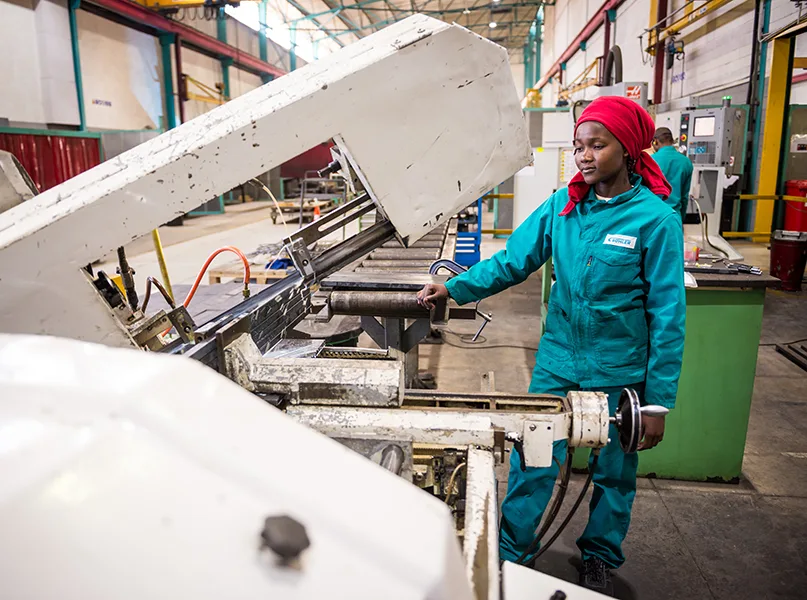
FULL STEAM AHEAD
Looking ahead, Bühler plans to continue guaranteeing job security for its employees by maintaining a healthy financial balance sheet to ensure its longevity.
In part, this comprises strict cost management in the form of key performance indicators (KPIs).
Another of Bühler’s KPIs is remaining close to its customers, serving them better and faster every day.
“We’ve got what we call a ‘better business model’, through which we hope to be more transparent, as well as developing new tools and processes internally,” Sutter says.
As such, the company not only maintains close business relationships with its customers but partnerships built on trust.
Indeed, the company has ongoing relationships with industry associations such as the National Chamber of Milling, South African Chamber of Baking, South African Association for Food Science and Technology, and Animal Feed Manufacturers Association of South Africa, amongst others.
“Being closely linked with such associations means we know what’s happening in the market and work closely with them.”
Finally, Sutter notes the importance of keeping staff motivated and cites passion as the most important value to drive business success, now and in the future.
“We empower our employees through our core values, which include trust and ownership, keeping passion in mind when navigating difficult markets.
“We’re moving in a good direction and continue to do so, which can only be achieved when you have a strong and competent local team,” Sutter passionately concludes.
Editor’s note: Many of the business leaders featured by Africa Outlook continue sharing their insights on LinkedIn. For executives across Africa seeking to strengthen their online presence, visit LinkedIn for C-suite Execs.



